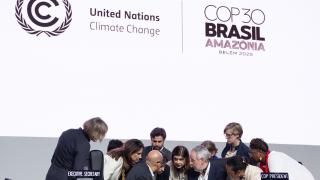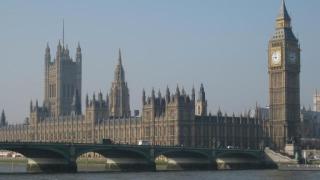
This story was originally published by Passblue on July 19, 2022. By Ben Donaldson and Enyseh Teimory.
LONDON — A new United Nations high commissioner for human rights needs to be found, appointed by the General Assembly and be ready to begin work on Sept. 1. Anyone who meets the criteria set out in the UN’s official job description can apply for this role — the deadline is July 27. The recruitment processes for our own jobs took much longer.
To say this appointment is taking place at a challenging time would be a gross understatement. Human-rights abuses are mounting across the world. Authoritarians, elected and otherwise, are dismantling longstanding laws, while traditional supporters of rights are in retreat, including at the UN. The world needs a strong, principled human-rights chief who will stand up for the vulnerable, stand behind those defending their rights and stand up to abusers, whoever they may be.
But will marginalized groups get a powerful advocate or a technocrat? So far, speculation on candidates has focused on UN insiders, and the appointment has, unsurprisingly, received little media attention amid multiple crises, with the exception of reporting by PassBlue, Geneva Solutions and Inside Geneva. This short shrift to such an important UN post plays into the hands of powerful countries who would prefer a candidate who won’t rock their boat and a process that excludes civil society.
The process is led by Secretary-General António Guterres and subject to the same guidance as other senior appointments. The successful candidate must be approved by the General Assembly. That means the permanent members of the Security Council cannot formally veto a candidate, but they — along with any of the other 188 member states — could torpedo the appointment by not playing ball.
In a June 22 letter to Guterres, more than 60 human-rights organizations called for an “open, transparent and merit-based process” involving “wide and meaningful consultation with independent human rights organisations and human rights defenders.” UNA-UK has set out in detail what the process could look like, including candidates having a proven record in acting with integrity in tackling harassment and corruption.
There is ample precedent for this engagement. Ban Ki-moon, Guterres’s immediate predecessor, consulted with civil society ahead of Navi Pillay’s appointment as high commissioner in 2008. Nongovernmental organizations participated in the appointments of successive humanitarian and refugee chiefs. And in 2016, Guterres himself engaged with civil society as part of a transformed selection process.
We hope that he will not step back from this hard-won progress. Civil society involvement was already reduced in the lead-up to High Commissioner Michelle Bachelet’s appointment in 2018, limited to a solitary representative on the interview panel. (Bachelet’s last day on the job is Aug. 31.)
But time is running out. With applications closing at the end of July, there is just one month to review candidates, hold interviews and consultations and conduct vetting before the appointment must be decided on. This timeline makes it hard if not impossible to conduct a robust process. Civil society engagement is unlikely to be a priority. The tight deadline also leaves little time for outreach to candidates, raising questions as to whether there is a preferred candidate.
So far, rumored candidates hail mostly from Europe, despite potential difficulties in approving a candidate from the continent, given current geopolitical dynamics. They include the assistant secretary-general for human rights, Ilze Brands Kehris of Latvia; Croatian Ambassador Ivan Simonovic; and Volker Turk of Austria, who used to work with Guterres at the UN Refugee Agency and is now under secretary-general for policy coordination in his office.
Eastern European diplomats point out that no high commissioner has ever hailed from their region, although there is no strict policy of rotation. The Western Europe and Others regional bloc has had two: Mary Robinson of Ireland and Louise Arbour of Canada.
Latin America has had three and one acting (Guyanese Bertrand Ramcharan, who replaced Brazilian Sérgio Vieira de Mello when he was killed in the Canal Hotel bombing in Iraq in 2003); José Ayala-Lasso of Ecuador and Bachelet of Chile. Africa and Asia have had one apiece, Navi Pillay of South Africa and Zeid Ra’ad al-Hussein of Jordan. Some diplomats believe candidates from Africa and Asia are more likely to get General Assembly approval. According to PassBlue sources, a former deputy high commissioner for human rights, Kyung-wha Kang of South Korea, has been floated as a possible candidate. Africa Intelligence is suggesting that human-rights expert Adama Dieng of Senegal may be in the running.
Geographic and other forms of diversity are important. But so too are the qualities and experience of candidates. There is still time for Guterres to increase outreach and engagement, including by working with civil society to ensure the strongest possible field of candidates. We need a human-rights chief with a proven record of successful public advocacy at the highest levels of power, without fear or favor to advance human rights — and not a quiet diplomat who is unwilling to hold powerful governments to account.
Photo: Young people protest for the climate. Credit: UNHCHR/Twitter via Passblue.






